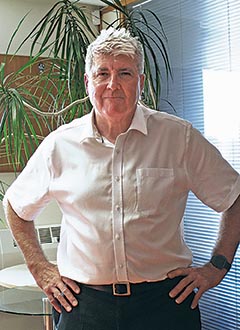Joe Heigold joins BINDT as Technical & Certification Engineer
05/10/2023
The British Institute of Non-Destructive Testing (BINDT) has announced that Joe Heigold has been appointed as Technical & Certification Engineer in the Technical & Industrial Department of the Institute. In this role, Joe will be taking over a number of responsibilities from Patrick Boulton, who was recently promoted to Senior Technical & Certification Engineer, as well as supporting the wider Technical and Certification teams in their day-to-day operations.
 | ||
| Joe Heigold |
In line with the existing duties that support industry by responding to specific issues and queries via telephone and email communications, Joe will provide support to the certification function in all technical aspects of method, product and industry-sector certification. Joe will also take a proactive role in non-destructive testing (NDT) and condition monitoring (CM) standardisation, having been Chair of the BINDT Standards Advisory Group, which seeks to promote and improve collaboration between BINDT and the British Standards Institution (BSI).
Over the last five and a half years, Joe was employed with Skills Training UK Ltd and tasked with the tutoring of NDT apprentices at Levels 2 and 3, along with providing technical support to Level 6 apprentices when required. In addition to progressing the technical theoretical knowledge of the NDT methods during the early and middle stages of an apprenticeship, Joe also assisted with the review of the end-point assessment (EPA) project report, advising on the form and content of that and the associated PowerPoint presentation, both of which would ultimately be presented to the EPA panel at BINDT. In that time, Joe directly engaged with around 100 apprentices and 92 organisations, involving around 82 PCN Level 2 certifications in a variety of methods.
Prior to June 2016, Joe was employed for almost 42 years in the steel industry in Rotherham by the company latterly known as Tata Speciality Steels. Starting in 1974 as a Metallurgical Technical Apprentice on a four-year apprenticeship with what was then British Steel, by 1977 Joe had already encountered ultrasonic testing (UT) and eddy current testing (ECT) methods and ultimately embarked on an NDT career that continued over the next 38 years.
For the bulk of that period, Joe was engaged solely in NDT and related quality activities in positions with an evolving role and responsibilities. The more recent of these involved being based in the Bright Bar department with a specific remit as NDT Technical Lead to work with the project engineering function tasked with an automated UT system for the critical UT inspection of steel bars destined for aerospace applications. This involved the production of the inspection requirements specification, the invitation of tenders, the review of submissions and hearing presentations, deciding on the best NDT solution on offer and the selection of partners and firming of contracts.
Subsequently, Joe was responsible for the design and production of bespoke reference/dynamic test bars and the execution of commissioning tests to include the statistical verification of inspection performance (NDT qualification), pre-approval audits and ultimately Nadcap and Aerospace Primes Approval of Process. Joe’s NDT qualifications included his first Level 3 UT certificate issued by Paisley College in 1985 and subsequent ASNT centrally registered Level 3 UT certification in 1989, which has been successfully renewed every five years since. Joe also achieved ASNT Level 3 MT (2000) and ET (2006), both of which have been maintained to date.
Over the same period, Joe has been an active volunteer on various BINDT committees as either a member or Chair, including the Employer Certification Group, Certification Advisory Board, Certification Management Committee, Council, Certification Technical Committee, NDT Practitioner Committee, Education & Professional Development Committee and the Engineering Council Working Group.
Joe said of his appointment: “I would like to thank BINDT for this opportunity and assure the current Chairs, and indeed members, of all of the committees I have traditionally supported as a volunteer that I aim to continue my attendance in order to maintain and assist the important communication links that channel industry views, aspirations and expectations through to the appropriate BINDT departments and personnel who can reasonably accommodate and facilitate those desires.”